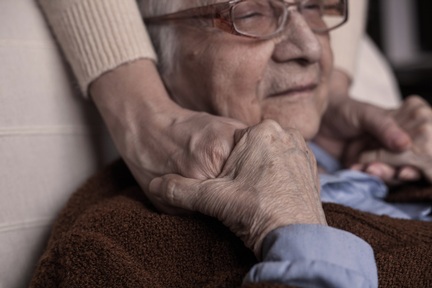Just over half of people with parents aged 75+ have family money to pay for care
Just over half of people with parents over the age of 75 (55 per cent) have admitted to having family money saved specifically to pay for their parents’ future care, a new poll reveals.

Some 67 per cent of people believe a lack of funding has had a negative effect on care in care homes and whether planned or as a result of financial challenges, over half the public say they have family money saved to pay for the future care of their elderly parents, according to a poll by Kepler Vision Technologies.
The poll is based on the responses of 1,000 UK adults with parents over the age of 75.
In total, 49 per cent of respondents with parents in care homes believe private care homes are improving when it comes to quality, compared with 32 per cent of respondents without a parent in a care home.
Of those who believe the quality of private care homes has improved, 48 per cent say this is because of more experienced carers and 47 per cent cite better monitoring systems.
When it comes to the most important aspect of ‘good care’ for parents in elderly care, face-to-face time was chosen by 49 per cent of people with a parent in a care home. The second most important factor was regular safety checks from care staff (50 per cent) followed by staff experience (49 per cent).
Some 43 per cent say the main advantage of their parent living in a care home is round the clock care, while a quarter said companionship and social interactions with others.
Kepler Vision Technologies uses artificial intelligence to monitor people at night using technology which alerts care staff to people who have had a fall.
Dr Harro Stokman, chief executive of Kepler Vision Technologies, said: “When it comes to the concept of ‘good care’, a definitive 49 per cent of respondents stated that face-to-face time with staff is the most important factor, with the second most important being regular safety checks from nursing care staff.”
When choosing a suitable care home, 62 per cent of people responding who don’t have a parent in a care home said the most important factor was the location, followed by reputation (59 per cent), cleanliness and hygiene standards (59 per cent).
Over half of people polled (52 per cent) say they are worried about their parent catching COVID, while 47 per cent are worried about their parent being lonely and 46 per cent are concerned they could fall over alone.
The poll also highlighted different perceptions of the quality of care in public and private care facilities. Some 60 per cent of people with parents in council-run homes believe that the quality of care has improved, compared to 49 per cent of people with parents in private care settings.
The chief executive added: “While it is good to see that people recognise the importance of staff and face-to-face interaction in elderly care, the huge gap in opinion between those with parents in care and those without shows that there are unfair negative perceptions around the residential care space.
“More can and should be done by care homes to give people the confidence that their relatives will receive the very best care - by highlighting the excellent work of staff and how well they are able to monitor resident’s needs with easy-to-use technology.”
Latest News
 29-Jul-24
Dementia Bus gives carehome.co.uk staff insight into life with dementia
29-Jul-24
Dementia Bus gives carehome.co.uk staff insight into life with dementia
 01-Mar-24
Find out the top care homes in 2024
01-Mar-24
Find out the top care homes in 2024
 21-Mar-23
UK's top care homes in 2023 revealed
21-Mar-23
UK's top care homes in 2023 revealed
 03-Jan-23
carehome.co.uk launches free care helpline
03-Jan-23
carehome.co.uk launches free care helpline
 13-Dec-22
5 mins with Emily Whitehurst, chief operating officer for Constantia Healthcare
13-Dec-22
5 mins with Emily Whitehurst, chief operating officer for Constantia Healthcare